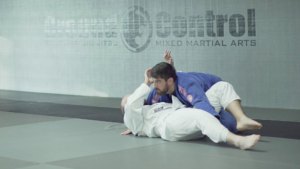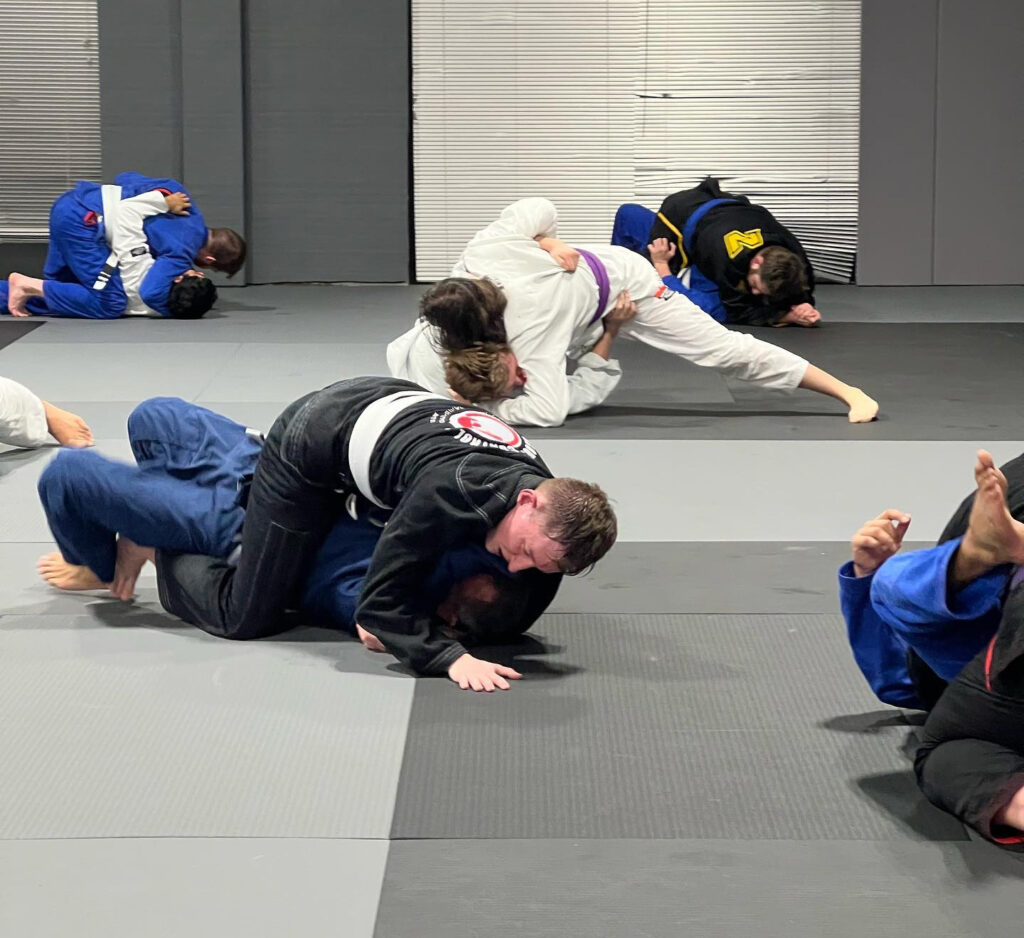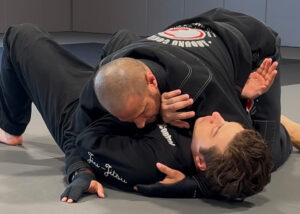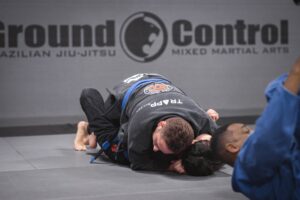
From Jiu-Jitsu to the Cage: Making a Confident Move Into MMA
You’ve put in the hours on the mats—drilling, rolling, building a solid ground game—and now you’re thinking about stepping into something more intense: MMA. It’s
Every dedicated Brazilian Jiu-Jitsu practitioner will, at some point, experience a plateau. It’s that tough phase where progress feels stagnant, your go-to techniques aren’t landing like they used to, and your training partners seem to have an answer for everything you throw at them.
Though frustrating, plateaus are a normal and essential part of growth in BJJ. They signal that you’re refining your skills and approaching a breakthrough—you just need to make the right adjustments to push past it.
If you’ve been feeling stuck in your training, don’t worry. Here are some effective strategies to help you overcome plateaus and continue evolving on the mats.


At an advanced level, you probably have a go-to game—a guard you prefer to play, a few submissions you hunt for, and certain escapes you rely on. While specialization is great, it can also lead to stagnation. One way to get out of a plateau is to switch up your training focus and explore new areas of your game. Try the following:
It’s natural to gravitate toward the same training partners—those who give you competitive rounds without completely overwhelming you. But if you’re not mixing it up, you’re limiting your growth. Try the following:
Variety forces you to problem-solve in real time, keeping your game evolving rather than stagnant. Plus, switching it up keeps things interesting!
Watching BJJ instructionals or competition footage can be helpful, but if you’re just absorbing random techniques, you might not be getting the most out of it. Instead, study with a specific goal in mind. For example…
If you’re struggling with half guard passing: Watch matches featuring high-level half guard passers and analyze their approach.
If you’re finding it hard to finish submissions: Focus on micro-adjustments rather than new techniques.
Watch your own rolling footage and look for patterns in your mistakes—where are you getting stuck?
Being more intentional with your study time can help you apply what you learn directly into training. Your coach can always help you point out areas you need to analyze as well, so don’t hesitate to ask for their critiques on the footage too.
At the advanced level, it’s easy to feel like you’ve “been there, done that” with certain techniques. But are you drilling them with real intention?
Instead of just going through the motions, identify weak points in your execution and drill with precision. Focus on details—where your weight is distributed, how your grips are affecting control, or how your opponent reacts to small adjustments.
Try isolating specific movements rather than drilling an entire sequence. For example, if your armbar setups feel predictable, just drill getting to the armbar position over and over rather than finishing it.
Intentional drilling, rather than mindless reps, is what truly sharpens technique! Stop getting lost in the routine of practice and start challenging yourself.
Sometimes, a plateau isn’t due to a lack of knowledge or skill—it’s because your body isn’t performing at its best. If you’re constantly sore, stiff, or dealing with nagging injuries, your performance and ability to improve will suffer.
Make sure you’re prioritizing:
If you’re always pushing hard but not taking care of your body, your progress will slow down. Sometimes, the best way to break a plateau is to take a step back and let your body recover.
One of the biggest obstacles to breaking a plateau isn’t physical—it’s mental. When progress stalls, it’s easy to feel frustrated, compare yourself to others, or even lose motivation. But the truth is, plateaus happen to everyone.
Instead of seeing it as a negative, treat it as a challenge to solve. Some of the biggest breakthroughs in your game will come right after a tough plateau—if you keep pushing through.
Remember why you started training, focus on small improvements rather than big jumps, and trust that consistency will pay off.
Breaking through a plateau in BJJ isn’t about drastic changes—it’s about small, intentional adjustments that add up over time. Train smarter, stay open to learning, and embrace the challenge.
At Ground Control Columbia, we know that improvement never stops. Our coaches and training partners are here to push you, challenge you, and help you reach that next level.
If you’re feeling stuck, talk to your coaches, switch up your training approach, and keep grinding.

You’ve put in the hours on the mats—drilling, rolling, building a solid ground game—and now you’re thinking about stepping into something more intense: MMA. It’s

At Ground Control Columbia, our advanced athletes know the real battles don’t always happen in submissions—they happen when you’re fighting to keep your guard alive.

Preparing for a Brazilian Jiu-Jitsu or striking tournament is more than just training hard—it requires strategy, discipline, and a well-rounded approach to physical and mental
© All Rights Reserved. Ground Control Columbia